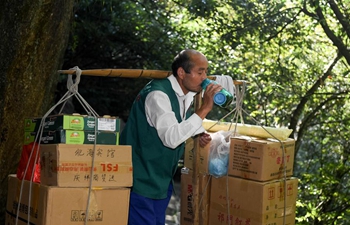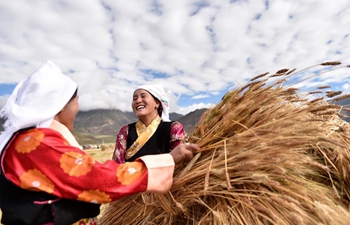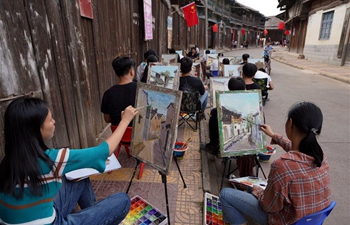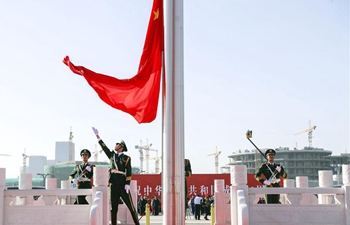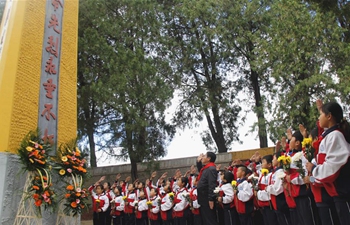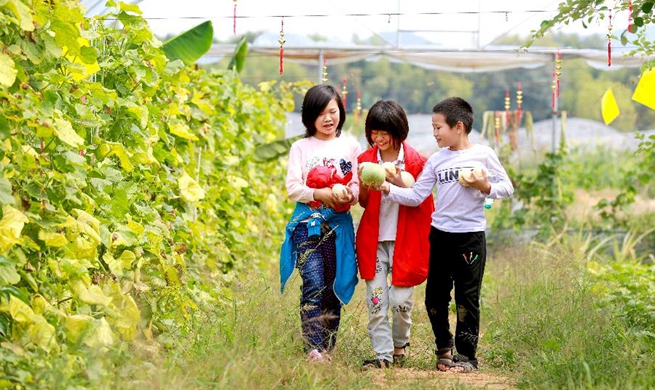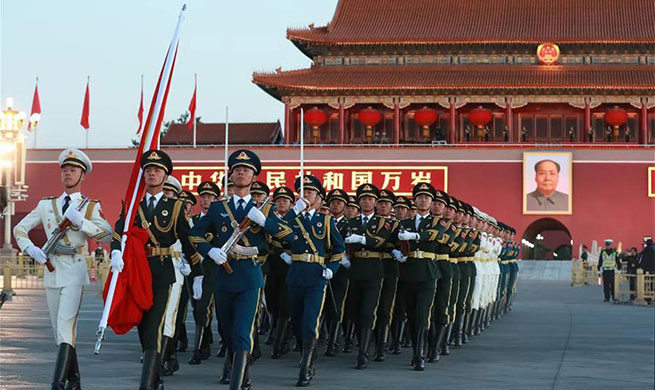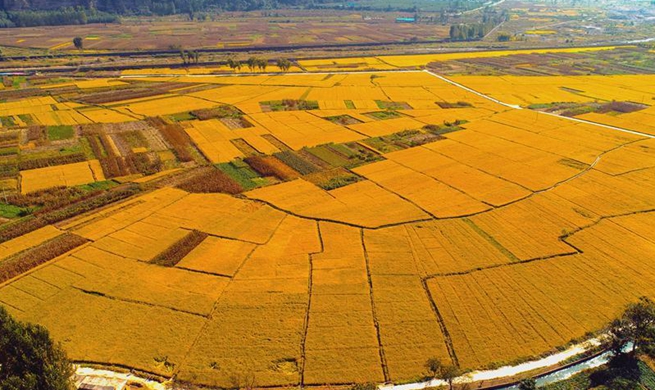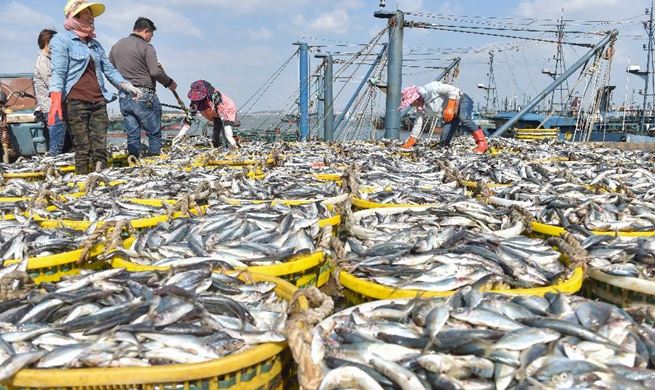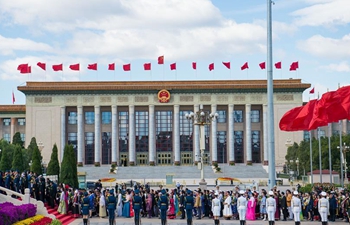NAIROBI, Oct. 2 (Xinhua) -- The United Nations on Tuesday called on African governments to re-strategize their programs against deforestation and environmental degradation.
Elsie Attafuah, the United Nations Development Program (UNDP)'s Africa Regional Technical Advisor for UN REDD, told the governments to incorporate integrated approaches that are aimed at benefiting communities.
"There is need to adopt approaches that promote community benefits from natural resources through sustainable land use and reduction of deforestation," Attafuah told delegates attending the 2018 Africa Knowledge Exchange on tackling deforestation in Nairobi.
She said the approaches must be transformative, cohesive and aligned to nationally determined contributions (NDC) and the Reducing Emissions from Deforestation and Degradation (REDD+) program.
Attafuah stressed the need to involve both public and private sector collaborations to help upscale the existing limitations of existing mitigation strategies to reduce deforestation.
"The persistence of deforestation and environmental degradation in Africa has increased pressure hence the need to have both governments and companies to address these challenges," she added.
Attafuah said 28 countries have adopted REDD+ program and most of them are getting into implementation stages.
UN-REDD Program was launched in 2008 to provide countries that request its support with reliable and effective technical assistance, capacity building, and policy advice to help them access REDD+ financing.
The UNDP advisor said that the countries must develop a common interest in commodity production, improved economic growth and livelihood opportunities, and a resilient natural resource base that can continue to provide crucial ecosystem services.
"There is need to align deforestation programs with the country's national development visions so that the country's emissions of green house gases can reduce," she added.
Attafuah revealed that Brazil, Ecuador, Democratic Republic of Congo (DRC), Ethiopia and Ghana already have greenhouse gases emission agreements with donors who are willing to support their deforestation programs.
According to Attafuah, NDCs under the Paris Climate Agreement and deforestation-free pledges in the New York Declaration on Forests, has expanded interest in public-private collaborations in the developing countries.
Every year, the UN-REDD Program holds knowledge exchanges in Africa, Latin America and Asia Pacific. These exchanges are aimed at helping countries address challenges on forestry and climate change.
Marieke Sandker, Food and Agriculture Organization of the United Nations (FAO) Forestry Officer UN-REDD noted at the meeting that great progress is being made on REDD+ as most countries are widely getting involved.
Sandker said 34 countries have now submitted a forest emission level to the United Nations Framework Convention and Climate Change (UNFCCC) which is a benchmark for assessing REDD+ performance.
"These countries house 1.3 billion hectares of forest which is more than one third of the global forest cover but more importantly, these countries contain 66 percent of global deforestation," she noted.
She called on governments to own and develop a coordinated approach towards the realization of the REDD+ programs.
Participants at the meeting are drawn from the DRC, Congo Republic, Cote d'Ivoire, Ethiopia, Ghana, Kenya, Liberia, Madagascar, Nigeria, Uganda and Zambia.

